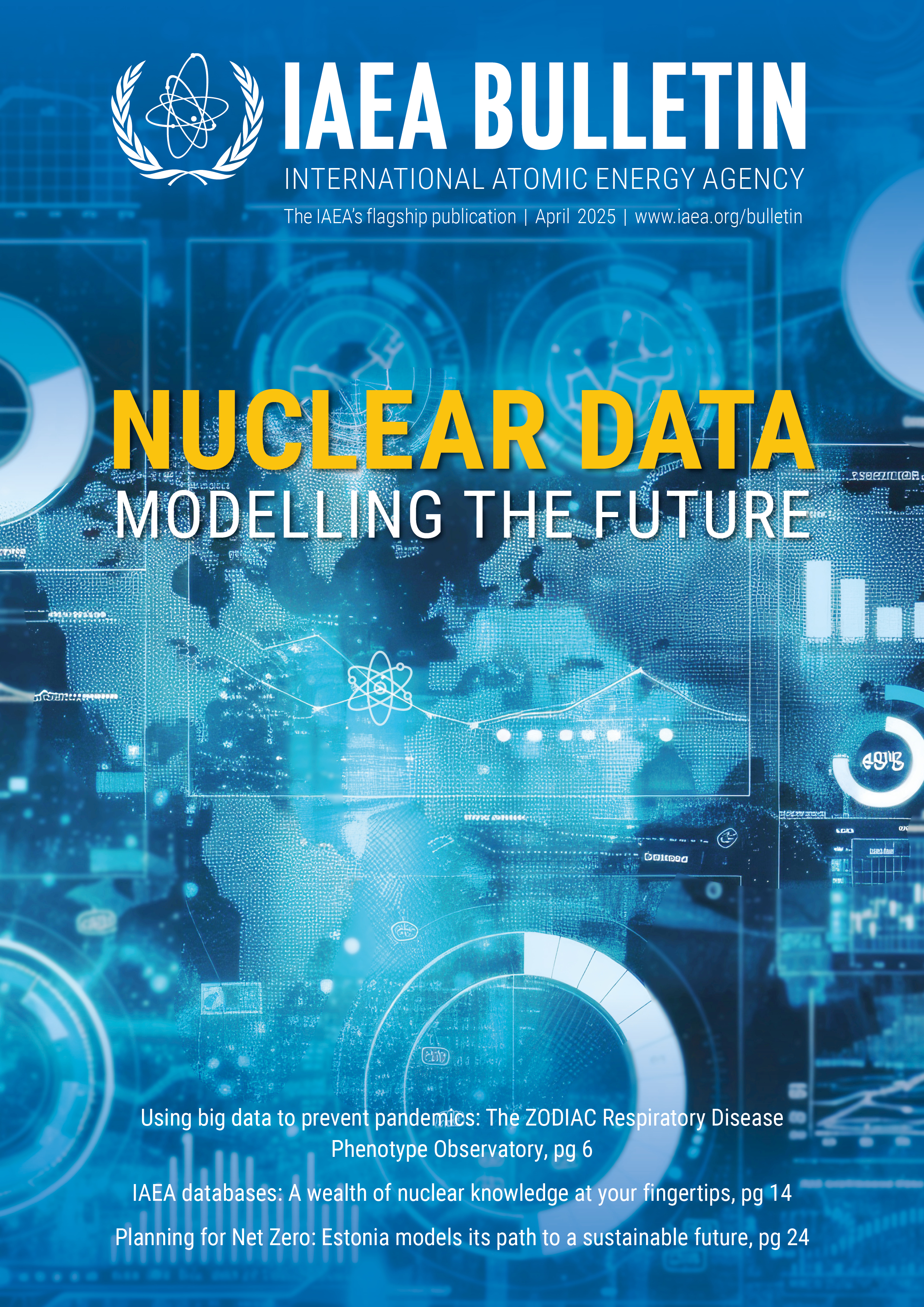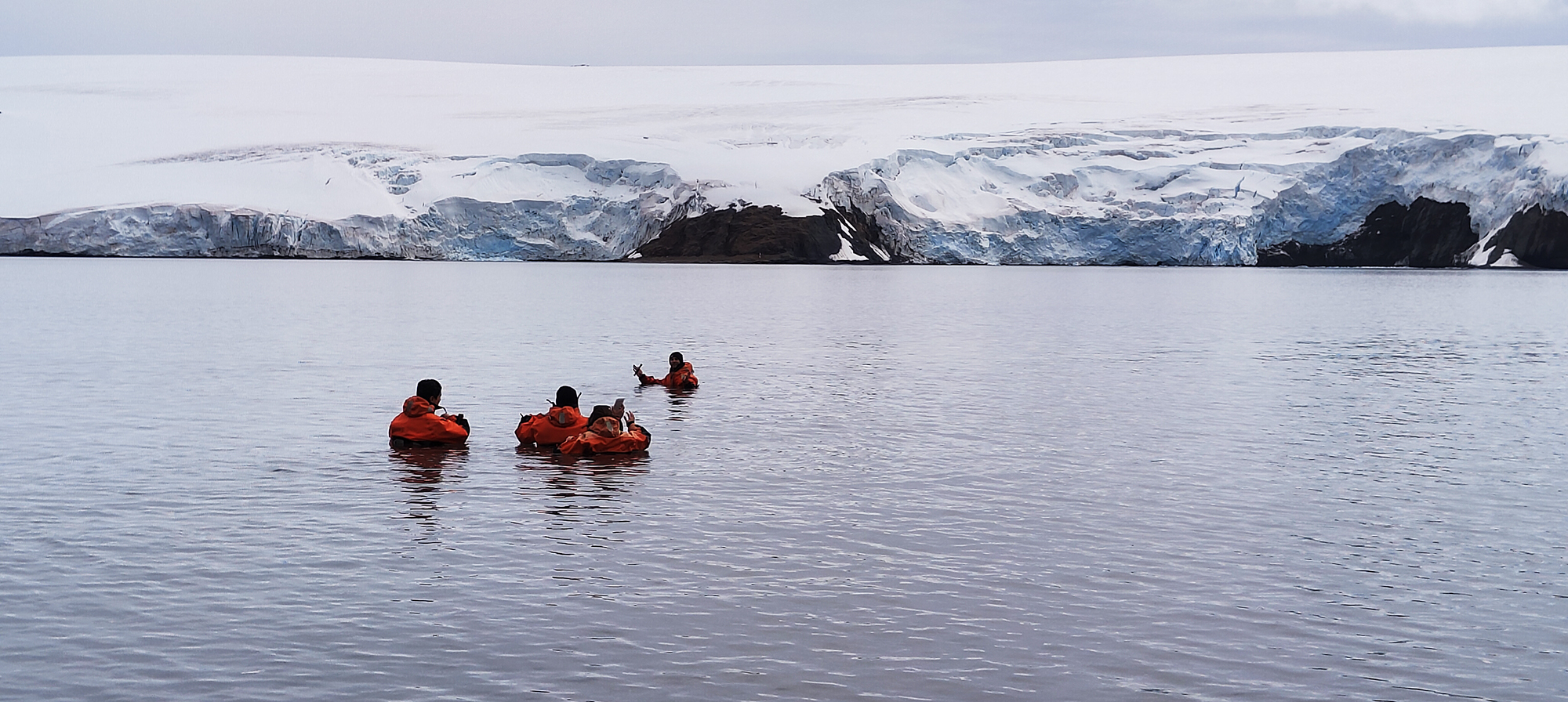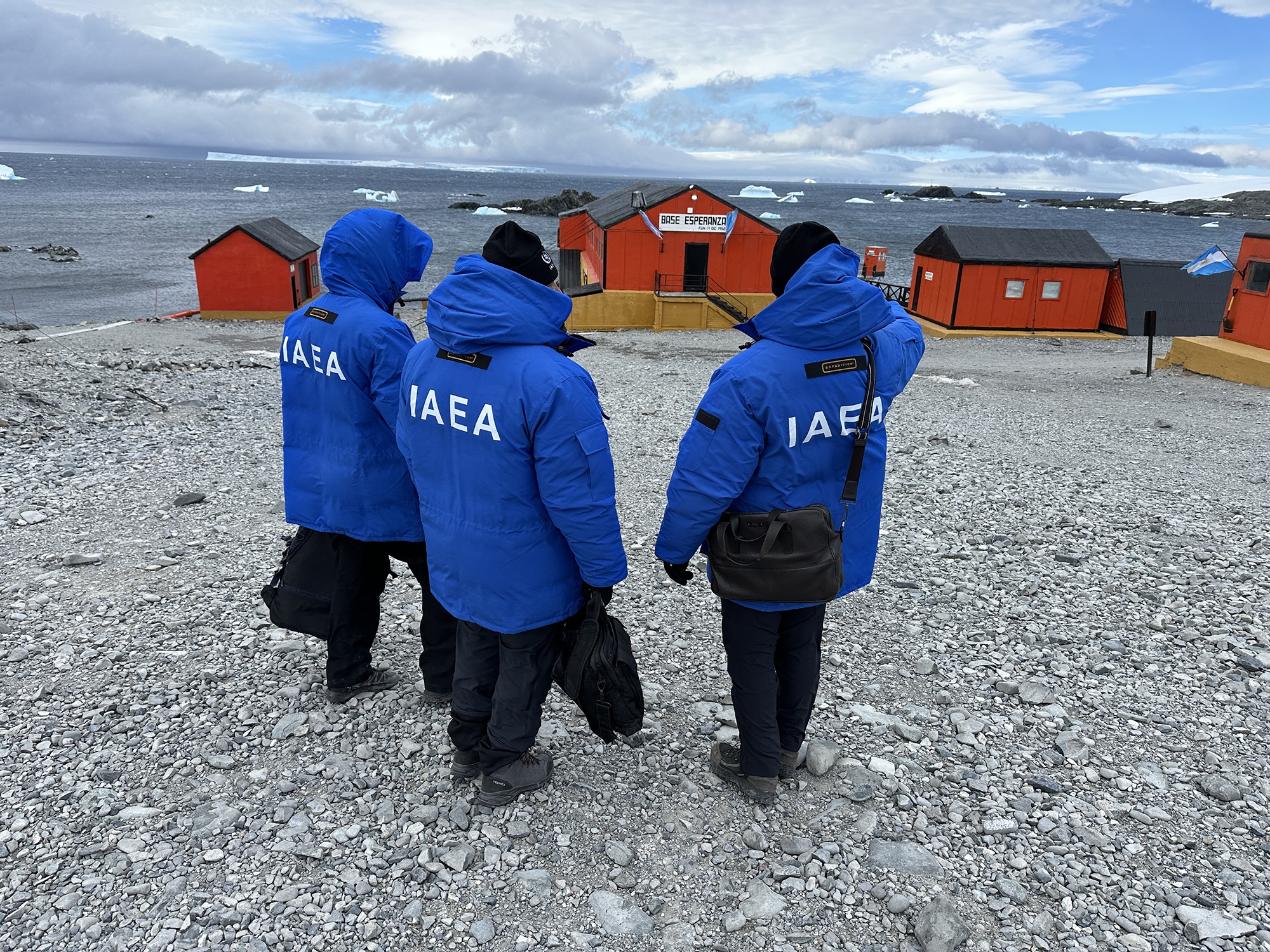“No words of mine can convey the impressiveness of the wonderful panorama displayed to our eyes,” wrote legendary polar explorer Robert Falcon Scott in his journal during an expedition to Antarctica in January 1911. Marc Metian, Fran?ois Oberhaensli and Carlos Alonso, IAEA experts who ventured to the seventh continent in January 2024, echo his sentiment. “The icebergs, the constantly changing weather, the wildlife — it’s simply amazing how all of these elements come together in this extreme environment,” said Metian.
More than a century ago, Falcon Scott faced a landscape untouched by humans. Today, global pollution is reaching even Earth’s most remote regions, and Antarctica is no exception. To learn more about the problem of marine pollution, the scientists embarked on the IAEA’s first research expedition to Antarctica to investigate the presence of microplastics on and around the white continent. Organized by the Argentine Antarctic Institute, the journey led them some 15 000 kilometres from their workplace at the IAEA Marine Environment Laboratories in Monaco.
“Microplastics are particles ranging from one micron to five millimetres in size. Most research is done on larger fragments, while we focused on extremely small materials, starting from 20 microns,” explained Oberhaensli, highlighting the mission’s unique approach to detecting pollution at unprecedented scales.
Moving around by helicopter, military cargo plane and icebreaker, the scientists collected samples from 22 different sites. The specimens ranged from seawater and sediments to penguin droppings and marine organisms.
Gathering the samples was not an easy task. The scientists worked in temperatures as low as -25 degrees Celsius, braving winds of up to 160 kilometres per hour. While these conditions were incredibly challenging for the researchers, the wildlife around them seemed unfazed.
“One of our stops was Esperanza base, in the middle of a penguin colony,” Oberhaensli said. “You open the door, and there are penguins looking at you. An ice storm made it almost impossible for us to move around there, but the penguins just came and went quietly, hunting for fish and feeding their chicks. It was incredible.”


